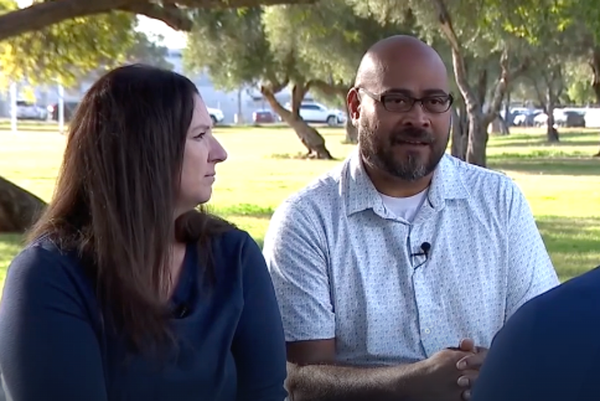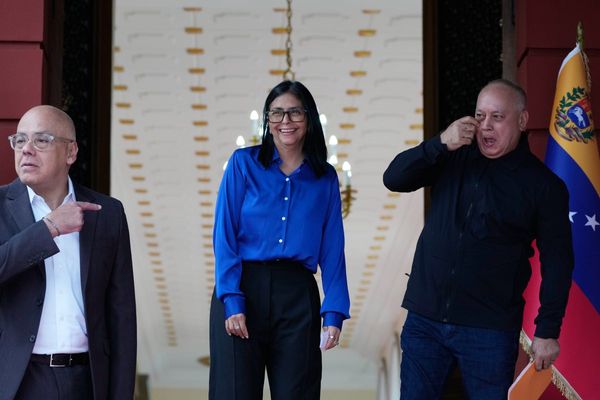
Local museums can only dream of the audience appeal achieved by artist Linett Kamala’s exhibition Disya Dancehall. Kamala has taken over the defunct Cod’s Plaice fish and chip shop opposite Kilburn station in north London and hung it with her paintings of the area’s 00s dancehall queens. Tight lace, designer labels, serious bling, deadly nails: this was dressing to impress as a performance art.
Cod’s Plaice has been reimagined as a Jamaican takeaway, complete with cafe tables. On the day it opened, it smelt deliciously of warming patties. People drifted in from the street to buy food and paintings (neither were for sale) then stayed to listen to an audio work blending dancehall sounds with interviews from the scene.
Other artists have celebrated rave culture as one of Britain’s last great youth movements; Kamala makes a forceful case for a reappraisal of dancehall: the sound systems, community, music and style of the late 90s and early 00s. No doubt the throng of Kilburnites trying to buy patties and popcorn will be followed by style editors on a pilgrimage to check out Kamala’s paintings and photos from back in the day. Here’s hoping they hang out and listen to the stories, too.

Because this show, and the Brent biennial of which it is a part, celebrates home as a cultural construct: club kids, ravers, chosen families, congregations, support groups and communities that offer shelter and love in a brutal city. Marking 10 years since home secretary Theresa May announced her aim “to create, here in Britain, a really hostile environment for illegal immigrants”, the question underlying this second edition of the biennial is what home means to first- and second-generation immigrants in this diverse borough, in a country apparently not inclined to make them feel welcome.
What does it mean to stage an art biennial in a borough that has lost services and amenities, as the years of austerity bleed into the new cost of living crisis? How do you programme socially engaged art projects without them becoming an unsustainable stopgap for lost school arts programmes, youth centres and LGBTQ+ support groups? What role can art play?
As with Disya Dancehall, it can offer space to hang out, listen and reflect. Shenece Oretha’s In Counter Harmony in the extraordinary Tin Tabernacle is a sound collage of groups using a community space – including Brent’s Reggae Choir – broadcast amid lavender drapes and glossy streamers. Sarah Rose’s An Open Letter of Many Replies uses the humid, woody interior of a disused bowling club in Roundwood Park. Rose reads a tribute to conservationist Rachel Carson and her lover Dorothy Freeman: a soothing experience, like listening to love letters in the dark.

The biennial takes its title – In the House of My Love – from Ezra Green’s A Poem to the Nationalist Marcher (For the Queer People of Warsaw) which imagines loving hospitality as a force to counterbalance homophobia, nationalism and bigotry. A major, urgent strand of the programme looks at queer identity and visibility. Suspended above the shelves at Willesden library, a jaunty sign reading “Growing Up Brent” directs visitors to a radio play made by Ed Webb-Ingall with members of the Mosaic LGBT+ Young Persons’ Trust. Together they imagine the early days of the support group, founded in Brent in the shadow of section 28 and the Aids epidemic.
Accessed down an unprepossessing alleyway, in a railway arch between mechanics’ shops, Alex Baczynski-Jenkins’s film You Are a Guest Now is a rambling but profoundly touching portrait of a group of young queer friends finding beauty on the social margins in Poland. The insalubrious locale seems apt: they live in precarious times, amid the erosion of both LGBTQ+ and women’s rights.
In the pretty St Matthew’s Church, Katarzyna Perlak has suspended decorative totems inspired by pajaki – Polish paper chandeliers. Perlak’s include contemporary ephemera: plastic toys, bunched keyrings, a studded stiletto boot. As folk craft given a queer makeover, the pajaki have immediate appeal. The congregation were curious, but some started to read the accompanying text, then wandered away. This biennial’s programming may be attuned to its community, but much of its text is heavy with academic artwankerese.
In a building housing a mental health charity and an English language school, Arwa Aburawa and Turab Shah’s beautifully shot film I Carry It With Me Everywhere explores the complex webs of duty, danger, belonging and family ties that keep migrants suspended between two worlds. A totemic work of this biennial, it is locally made by film-makers who run a youth programme.
Much of this biennial’s work is at community level, invisible to visitors, which is how it should be. This isn’t meant to be a fancy showcase. Brent has reimagined that international monster, the art biennial, as a simple expression of ongoing commitment to creative engagement.
Brent Biennial 22: In the House of My Love is at various London venues until 11 September.







